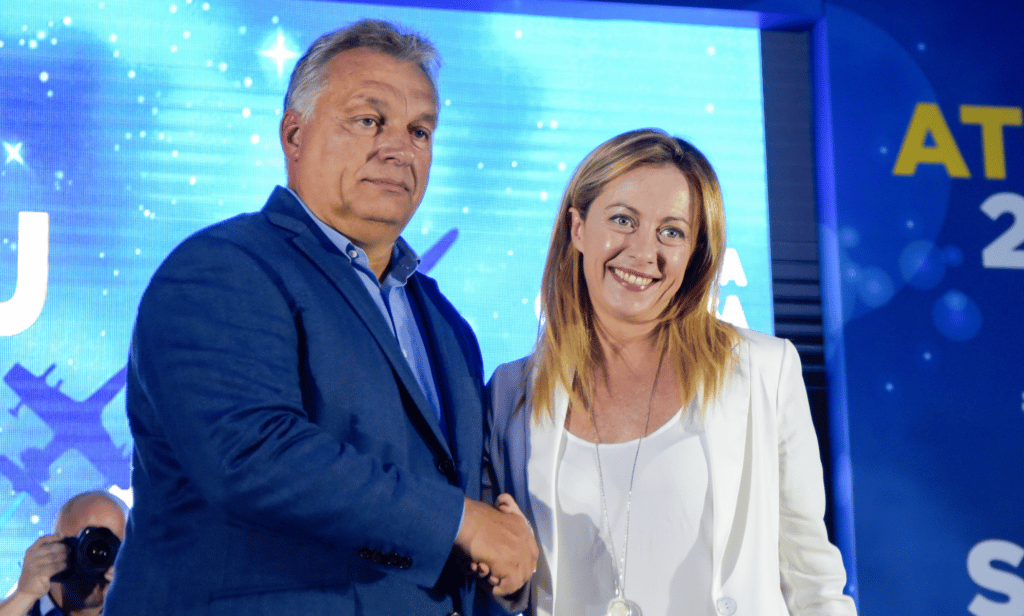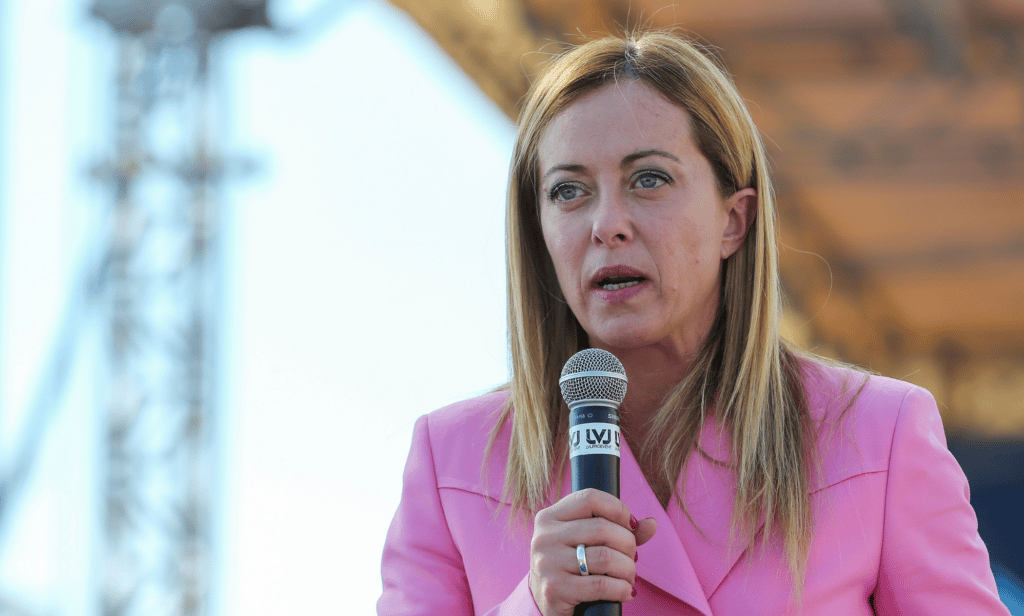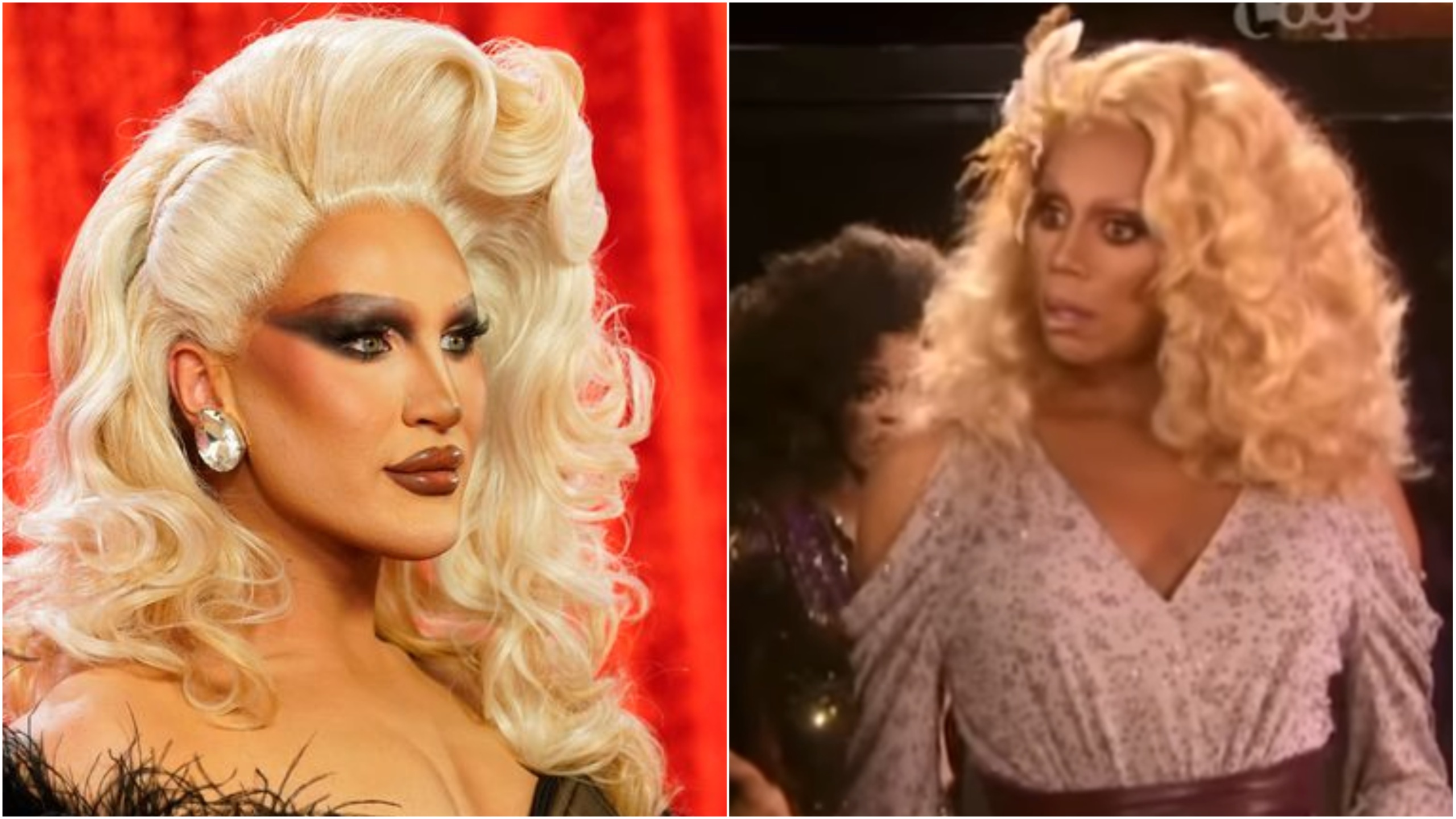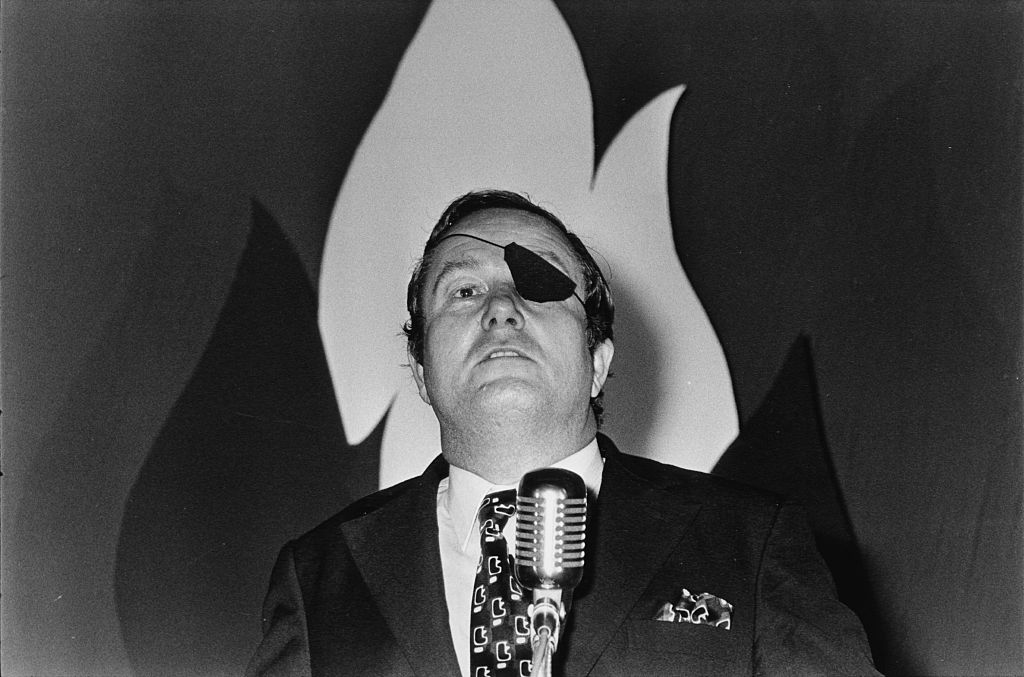Italy’s ‘next PM’ Giorgia Meloni is a far-right leader who rallied against ‘LGBT lobbies’
Giorgia Meloni, leader of far-right party Fratelli d’Italia (Brothers of Italy), is set to become the next prime minister of Italy. (Getty)
Far-right leader Giorgia Meloni, who has rallied against “LBGT lobbies” and so-called “gender ideology”, is set to become Italy’s first female prime minister.
Projections based on the near-final count of votes showed a victory for a right-wing coalition, led by Meloni’s Fratelli d’Italia (Brothers of Italy) party, should have a solid majority in both houses of parliament. If victorious, Meloni is expected to form Italy’s farthest-right government since World War II.
Meloni said the vote showed Italians supported a right-wing government led by her party but said her party would “govern for everyone”.
“Italians have sent a clear message in favour of a right-wing government led by Brothers of Italy,” she said.
She told Euronews that her election would “be a step forward” in terms of breaking the glass ceiling that is “preventing women from achieving important public roles in society”.
“It would be an honour for me to be the first to break this taboo in my country,” she added.
In her debate as leader of the Brothers of Italy, Meloni has espoused extreme right-wing positions – making her rise to premiership in Italy extremely concerning.
She lashed out at the European Union’s “anti-democratic drift”, advocated for the dissolution of the eurozone and alleged unnamed forces were guiding immigrants to Italy in the name of “ethnic substitution”.
Giorgia Meloni has remained a polarising figure as she’s aligned herself closely with Hungary’s nationalist leader Viktor Orbán, who has made his own anti-LGBTQ+ stances well-known during his leadership.

She’s also long displayed intolerance towards the queer community as she’s rallied against what she’s described as the “LGBT lobby” and denounced so-called “gender ideology”.
Meloni previously outlined her priorities and anti-LGBTQ+ stances during a speech to Spain’s far-right Vox party.
“Yes to the natural family, no to the LGBT lobby, yes to sexual identity, no to gender ideology… no to Islamist violence, yes to secure borders, no to mass migration… no to big international finance… no to the bureaucrats of Brussels,” she said.
Meloni publicly opposed surrogacy and adoption by queer couples during her election campaign. She has repeatedly said that she’s not homophobic, but she believes it is best for a child be raised by a mother and a father.
Alessia Crocini, the president of Rainbow Families, told New York Times that the association of LGBTQ+ families “hopes the country would go forward” but feared there is a “dark period ahead”.
Her party also came under scrutiny after Frederico Mollicone, culture spokesman for Brothers of Italy, urged Italian state broadcaster RAI not to air an episode of Peppa Pig that features a bear with two mums, calling it “gender indoctrination”.
He also claimed young children shouldn’t see loving queer parents of young children presented as something “natural” or “normal, because it’s not”.
He also claimed that “homosexual couples are not legal” and “not allowed” in Italy. This is despite the country legalising same-sex civil unions in 2016, a reform that the Brothers of Italy party opposed in parliament.
Mollicone later clarified that he was only referring to queer couples that adopt. He also claimed the party is “against all discrimination” and supports civil unions.

Oria Gargano, president of an organisation that helps victims of domestic violence, told Euronews before the election that it was extremely concerning to see the rise of Meloni’s party and potentially them winning the next election.
“This a political party [Brothers of Italy ] which has always denied women’s rights,” she said. “It has been against abortion.”
She continued: “It’s against all the LGBTQ+ community.
“It considers abortion a tragedy. And it wants to create a cemetery for aborted fetuses with mother’s names everywhere in Italy.”
Giorgia Meloni’s coalition government is unlikely to come into power before the end of October when prime minister Mario Draghi hands over the reins to the next leader.






